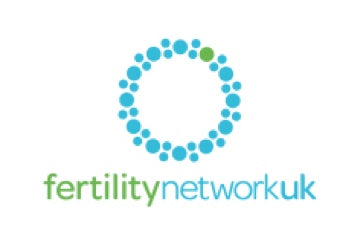IUI Treatment at a Private Fertility Clinic in London
WE'VE featured in





What is intrauterine insemination (IUI)?
Intrauterine insemination — otherwise known as IUI — is a method of artificially inseminating a sample of filtered sperm and placing it into the uterus at the time of ovulation.

When is IUI recommended?
IUI is performed to enhanced sperm quality.
Some women experience problems with ovulation, and IUI may be advised in addition to the use of ovulation inducing medication to further improve the chances of conception.
Other reasons include unexplained infertility, or if your partner has frozen their sperm.
Couples who are unable to have sexual intercourse could also benefit from this non-invasive treatment.

Meet Dr Irfana Koita – Your IUI and Fertility Specialist
Experience personalized fertility solutions under the expert guidance of Dr Irfana Koita, a FRCOG fellow trained in assisted conception at King’s College Hospital, London, with a Masters in Healthcare Leadership from Cornell University, USA.
At IVF Matters, Dr Koita is committed to making comprehensive diagnostic and fertility services, including IUI treatment in London, accessible and financially feasible across the UK. Her goal is to empower patients with high-quality, evidence-based reproductive care, supporting you at every step of your fertility journey.
Book your IUI consultation today and take the first step toward achieving your dream of parenthood.

Top IVF Success Rates in London
Based on HFEA national data (2023), IVF Matters achieves IVF and frozen embryo transfer success rates that are above the UK average.
From 2022 to 2024, patients aged 30 to 43 achieved a 47% IVF success rate and a 50% FET success rate, compared with UK averages of 25% and 33% for live birth rates, respectively.
As a trusted London fertility clinic, we offer personalized IVF treatment plans to support your fertility journey.
A NEW WAY TO PAY FOR FERTILITY TESTS AND TREATMENTS
Buy Now Pay Later
Payments in instalments. Soft credit checks! Quick applications! Select at checkout.

Weekly debit card payments over 6 weeks

Monthly credit card payments over 6 months

Monthly payments up to 7 years
Fertility care in the comfort of your home or in-person at London
IUI Treatment
Procedure Demo
Advantages and Disadvantages
FAQ
The chance of an IUI procedure resulting in pregnancy will depend on a lot of different factors. For example, the cause of infertility could hinder the success rate of the procedure, as could the man’s sperm quality or the count.
Like many other types of fertility treatment, IUI does tend to be more successful the younger you are. However, there’s still a good chance that you can get pregnant even if you are slightly older when you go through IUI.
It’s worth noting that the older you are, the more cycles you may need to try before falling pregnant.
IUI as a procedure is very safe, as it’s minimally invasive and the risk of any serious complications is pretty low. However, as with any medical procedure, there are some risks attached.
The risks of an IUI procedure are:
- Multiple pregnancies/births
- Infections
- Spotting
- Ovarian hyperstimulation syndrome (OHSS) – this is extremely rare
The risks of the procedure will be explained to you before you start the treatment, so you’ll be able to decide if you’re willing to go ahead or not.
IUI is less invasive than IVF. In IVF, the eggs are taken out of the body and fertilised in a lab — making the process much lengthier, as the fertilised eggs then have to be placed back into the womb.
IUI is essentially natural fertilisation that takes place within the body, rather than outside of it. Hence, your fallopian tubes need to be patent in order for the egg and sperm to meet.
Another key difference is that in IUI, only the highest quality sperm are selected and placed into the uterus. These sperm can then naturally fertilise the egg, allowing the woman to become pregnant.
The process of IUI treatment is relatively simple and pain-free. The length of the treatment should be the average length leading to ovulation, which is 14 days.
Before the insemination takes place, the woman’s egg reserve will be checked, as well as the fallopian tubes and uterine cavity. The quality of the sperm will also be assessed. All of these checks ensure you’re giving your body the best chance of getting pregnant.
Once the checks have been completed, you will receive scans and blood tests until you’re ready to have the trigger injection. This hormonal injection stimulates the body to ovulate — allowing the sperm the best shot at reaching it. The sperm sample is then placed into the womb via a catheter, to encourage fertilisation.
After the IUI procedure you will have to wait to see if the treatment has worked as you normally would by taking a pregnancy test 16 days later.
When preparing for your IUI treatment, you can expect to have fertility tests to ensure the treatment is right for you.
These tests can include and aren’t limited to:
- Ultrasounds of the ovaries and uterus
- Dye test to check your fallopian tubes and uterus
- Semen analysis
- Blood tests
- STI tests
After the IUI procedure has been completed, there may be some mild side effects, which can include mild cramping and light spotting, If either of these side effects becomes severe, seek medical attention right away.
Most people find that they can get back to their everyday routine fairly quickly after their IUI has been completed, but it is best to follow any specific instructions given to you by your consultant.
IVF Matters provides all-inclusive, transparent treatment packages with no hidden costs. Flexible payment plans, including instalments and “buy now, pay later” options, are available to make treatment more accessible. Please see our pricing page for full details.

Take the next step to grow your family
If you’re considering IUI, get in touch with us today — we’ll be able to advise you on a full range of options based on your individual fertility needs.
We offer free 10-minute advisory calls to anyone looking to learn more about our approach and our treatments.
Start your exciting journey!
Contact Us
Our Location
Working With








